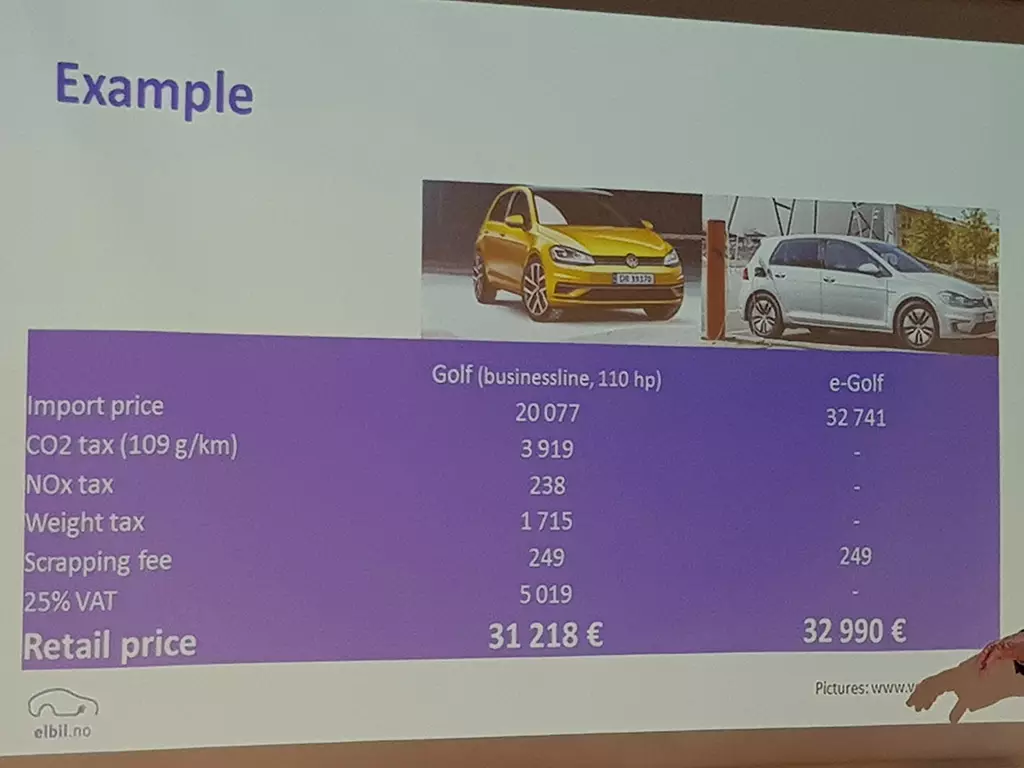Do you want to know what will be the future of electric cars in Portugal? We didn't guess, but we were in Norway, a country often cited as one of the most advanced in terms of vehicle electrification, and we can put forward some facts and trends.
When one of the biggest challenges facing the market is the queues at charging stations, which are close to 10 thousand compared to the 604 existing here, where is this market?
According to the responsible for VWFS in the country (Fleet Magazine traveled at the invitation of the Portuguese delegation), Norway is already in the massification phase. And with massification it is intended to say that the market share in sales was 52.5% in 2017.
Portugal will be at the point where Norway was in 2011, said the responsible for VWFS in the country, who has followed this process since the real revolution in the purchase of electric vehicles began. The country realized early on that it could only do so through a system of incentives, which currently include:
- Exemption from IUC*
- ISV Exemption
- VAT exemption*
- Autonomous Taxation Exemption
- 50% discount on tolls and highways*
- Circulation in lanes reserved for public transport*
- free parking
* Does not exist in Portugal
Electric charging
Of course, Norway has a GDP of more than twice that of Portugal (70.8 against 18.8 USD), a sovereign fund that reached a billion dollars last year or the fact that it managed to buy the Volkswagen e-Golf cheaper than the Portuguese importer also help.

However, the path that Norway took was to make the purchase of this type of vehicle as easy as possible. . In addition to the incentives it shares with Portugal, it also added others, such as the abolition of tolls, which is important in a country highly limited by these provisions.
However, all operators believe that it would be possible for the market to grow further. If there were more cars (the Opel Ampera and Kia Soul are on a waiting list) and better, more charging stations in cities for those who don't have a garage, more reliable charging equipment and again waiting lines to load vehicles.
From the “range anxienty”, which seems resolved with the charging network, Norway is also entering into “charging anxiety”, especially if you think that it is difficult, as the VWFS executive admitted, to wait an hour for the car charge with minus temperatures…
2025: 100% electric
In any case, Norway aims for all vehicles sold in 2025 to be electric. The car industry will have to be able to keep up. However, one of the first steps has to do with creating a market for energy operators, now that it has been realized that it is possible to make money with chargers.
On the part of VWFS, he moved forward with Hyre, a company aimed at redefining individual and electric mobility. The objective is to deliver a service to those who need a car on time and be able to monetize their own car. Customers will share their car with others using a digital key, with automatic toll and fuel consumption settlement.
In Portugal, the service is not planned. But VWFS is going to launch a project to convert customer fleets into electric fleets, through support in the planning process and installation of charging points in company car parks and the option to include the value of the electric bill in the monthly fee. Internally, it plans to convert a third of its fleet and install 12 charging points at its facilities.
If this and other projects go well, will we be in seven years with more than 50% of sales in electrified vehicles? It all depends on the incentives and supply of the car industry, but if you believe in the growth rate of sales of these vehicles, it could be a plausible scenario, the Norwegian officials agreed.
Consult Fleet Magazine for more articles on the automotive market.
